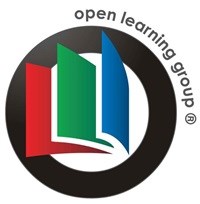






A key driver of this integrated approach is the formation of an academic arm that feeds relevant insight and understanding about the market into the content and structure of the various programmes that the ILSCM provides. This ensures that it maintains proactive management of the developments and changing training needs within the industry.
Academic head of the ILSCM, Mario Landman, commented that this academic approach is a core aspect of the ILSCM's student support function, driven by the ultimate aim of shortening the distance between learning and learner.
"The main motivation for the formation of our academic leg was that by becoming a fully-fledged academic institution we would gain credibility within the marketplace and it is now one of our biggest differentiators within the distance learning market.
"Corporate industry requires support with relevant industry and academic research. Our client support with such research also directs our strategies for capacity and methodology planning. This forms the basis of an operational structure that is governed on an ethical basis," he explained.
OLG's Academic Board currently oversees academic quality supported by various specialised academic subcommittees. The primary components of service delivery, teaching and learning, programme and curriculum development and assessment is governed and monitored by subcommittees that include an industry advisory board.
It was market research initially performed by the Academic Board that led OLG to specialise in the logistics industry where a dire skills shortage exists.
The formation of the ILSCM's academic arm has also seen the formation of a research arm that ensures teaching methodologies and curricula remain relevant and forward thinking.
Landman said: "This stems from our realisation that a common problem within the industry is that academic institutions' research is not always in touch with what happens in practice. Our academic board and industry advisory board assist us to move closer to the industry and ensure research is relevant to the marketplace and is in touch with the issues that they face."
Through research, the ILSCM aims to provide thought leadership derived from research data, thus contributing to knowledge generation and innovation in the supply chain environment.
The specific research methodologies that the ILSCM engages in to ensure that its curriculum stays relevant and user-friendly, includes continuous programme and institutional research as part of a greater quality audit process that incorporates different data channels; i.e. student surveys, interviews and other channels from students and lecturers. This is incorporated on an annual basis in a quality improvement plan, which addresses the reviewing of the curriculum.
Overall, the ILSCM views all of its learning programmes and curricula as dynamic and organic, demanding constant attention and refinement. This process never stops and sees the institute engaged in a constant cycle of customisation that gives it a unique edge within South Africa's distance learning sector.
"By practising as an academic institution that fits within a larger institution/corporation and focusses on another core business as a result (administrative and logistics support), the ILSCM is now in a position where we can apply our tests and pilots to our clients and share our market intelligence and best practices all around," said Landman.